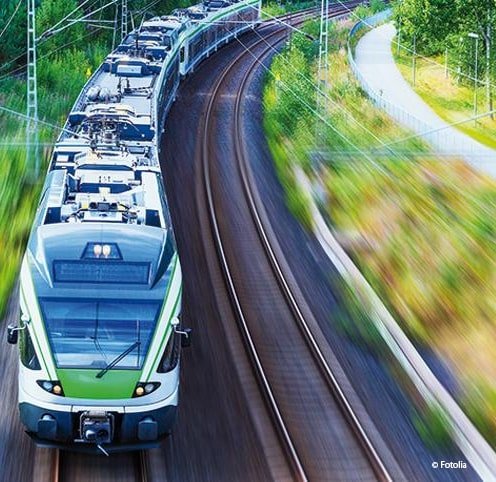railway-international.com
20
'20
Written on Modified on
Railway operations during COVID-19
Keeping European mobility operational during the COVID-19 pandemic is key. The Community of European Railway and Infrastructure Companies (CER) stresses that railways are doing their utmost to keep essential freight and passenger services running, while protecting their staff.

These exchanges need to continue in line with the call by European Transport Ministers last night for the smooth flow of essential goods as well as key workers across the EU.
Plunging sales and heavily reduced passenger services
As many companies in other industrial sectors, CER members are heavily suffering from the consequences of the pandemic. Amid plunging sales, international passenger traffic is almost at a standstill due to the closure of intra-EU borders. At national level, passenger traffic is significantly reduced due to the national containment measures taken by Member State authorities and official advice to keep travel via public transport to a minimum. Whilst many public service (PSO) operators are already working with relevant competent authorities, ensuring liquidity for open-access services during this crisis is crucial.
Despite the rapidly changing situation, rail operators are informing customers extensively about changes in schedule and cancelled services. Moreover, European railway undertakings are upholding special goodwill arrangements with affected passengers for reimbursement or exchange of tickets, with longer validity periods than usually. The protection of rail passengers remains an unquestionable priority also under these exceptional circumstances.
Rail freight - a reliable service in moving goods across Europe
Intra-European freight traffic is proving its resilience: while hinterland rail traffic from sea ports is dramatically dropping due to decreasing intercontinental exchanges, freight operators can free extra capacity to ensure intra-continental connections. In this way, they are able to offer safe cross-border cargo connections for large volumes of goods using minimal human resources. However, to be able to fulfil this vital function, it is essential that train drivers are regarded as "strategic workforce" allowed to cross borders without unnecessary restrictions in order to pick up and deliver freight trains smoothly.
For all services, specific protocols have also been activated for the sanitisation of facilities, workplaces and spaces dedicated to customer service, always in compliance with the indications of the competent authorities.
In order to enable all authorities to design upcoming emergency measures to curb the pandemic and support the sector, CER is collecting data on the above-mentioned aspects as well as the economic impact of COVID-19, the effects of which will require considerable EU-level as well as national support for transport.
CER Executive Director Libor Lochman said: "We are thankful to all rail transport workers for keeping the essential services running. The COVID-19 pandemic is a stress test for the whole European Union: for its institutions, for its economy, for its citizens. Railways are as much impacted by the consequences of the pandemic as by the consequences of the public measures taken to fight it, but are working hard to ensure freight and passenger rail transport continues."
www.cer.com

